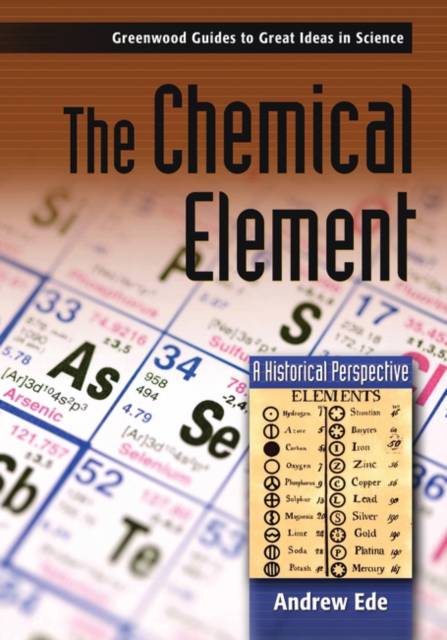
- Afhalen na 1 uur in een winkel met voorraad
- Gratis thuislevering in België vanaf € 30
- Ruim aanbod met 7 miljoen producten
- Afhalen na 1 uur in een winkel met voorraad
- Gratis thuislevering in België vanaf € 30
- Ruim aanbod met 7 miljoen producten
Omschrijving
One of the most familiar features of any high-school chemistry lab is the Periodic Table of Elements. Elegant, informative, useful to any student in the lab - the Periodic Table neatly summarizes our scientific knowledge of the chemical elements from hydrogen to uranium and beyond - atomic number, atomic weight, isotopes, and more. But how did scientists discover all of these features of the elements? How did the Periodic Table come to be? And, even more basically, how did the concept of the chemical element come to dominate how scientists understand chemistry? This book shows readers the answers to these and other questions regarding the scientific understanding of matter.
The Chemical Element, a volume in the Greenwood Guides to Great Ideas in Science, traces the history of this tremendously powerful concept from the ancient philosophers to the present day. The volume covers: the idea of the elements held by Aristotle and the other ancient Greek philosophers; how Chinese, Arabic and other ancient civilizations thought about the elements; Mendeleyev and the creation of the Periodic Table of Elements, the predictive power of which helped in the discovery of dozens of new elements; and the discovery of the artificial elements that are heavier than uranium Jargon and mathematics is kept to a minimum, and the volumes includes a timeline, a glossary, and a bibliography, making The Chemical Element an ideal resource for students researching chemistry and the history and nature of the scientific understanding of the world around us.Specificaties
Betrokkenen
- Auteur(s):
- Uitgeverij:
Inhoud
- Aantal bladzijden:
- 200
- Taal:
- Engels
- Reeks:
Eigenschappen
- Productcode (EAN):
- 9780313333040
- Verschijningsdatum:
- 1/06/2006
- Uitvoering:
- Hardcover
- Formaat:
- Ongenaaid / garenloos gebonden
- Afmetingen:
- 179 mm x 263 mm
- Gewicht:
- 607 g

Alleen bij Standaard Boekhandel
Beoordelingen
We publiceren alleen reviews die voldoen aan de voorwaarden voor reviews. Bekijk onze voorwaarden voor reviews.











